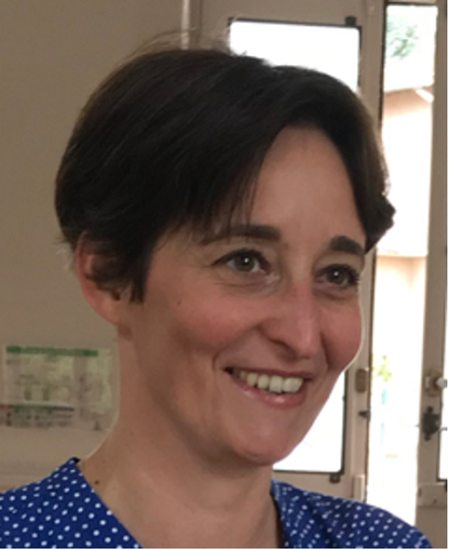Plenary Session #1
8:00 am – 9:00 am
Salon EFGH | Cleveland Marriott Downtown at Key Tower Salon
Surfaces in Lubrication: A Multiscale Analysis
Juliette Cayer-Barrioz, CNRS Research Director, STMS/LTDS, Ecole Centrale de Lyon (USA)
Reducing friction dissipations is a promising way to contribute to the global welfare. To do so, the first approach is to use low-viscosity fluids—
leading to thinner and thinner films—and the second is to modify the surfaces in contact. We illustrate here the combined approach consisting in investigating the surface effects on friction in contacts lubricated with low-viscosity fluids over all the lubrication regimes. We first present the IMOTEP research platform that allows us to carry out a multiscale analysis of lubricated contacts from full-film lubrication regimes to boundary friction regimes. Covering 11 decades of sliding velocities and contact pressure from 10
-10 to 10 m/s and up to few GPa [
1-4], it combines simultaneous measurements of contact forces with film thickness distribution for controlled contact kinematics. Surface modification is addressed in terms of topography as well as physico-chemistry.
The first part of this keynote presentation shows how surface roughness bridges the friction scale gap from molecular to multi-asperity contacts. For a simple frictional system exclusively undergoing structural aging, we explained how the macroscopic friction response resulted from the interplay between the contact roughness via the formation of contact junctions, and the molecular motion within adsorbed monolayers on the surface, through coupled experimental and computational approaches with a unified theoretical model [
5]. We were able to provide insights on the friction force decay, after the stiction peak, at the onset of sliding to a steady-state value over a few nanometers of sliding distance. The evolution of number of cross-surface attractive physical links, within contact junctions, was correlated to this memory distance.
The second part deals with the tribological behavior of adsorbed polymer layers on surfaces over all the lubrication regimes. The interactions between the metallic surface and the polymer additive induced the formation of a nanometer thick boundary layer, highly elastic with a shear elastic modulus of 90 MPa under a 50 MPa contact pressure [6]. Interferogram analysis showed that patches of adsorbed film well covered the surface at low velocity. At high velocity, the film thickness followed the elastohydrodynamic prediction. The existence of this boundary film resulted in friction reduction, shifting the mixed/EHL regime transition towards lower velocities. In hydrodynamic lubrication regime, two regimes
—thermal versus non-thermal
—competed depending on the kinematics. The role of non-Newtonian fluid rheology under high shear was also investigated [7].
Speaker Bio
 Juliette Cayer-Barrioz
Juliette Cayer-Barrioz, graduated with degrees in physics and mechanical engineering from the University of Grenoble in 1998 and Ecole Centrale de Lyon (ECL) in 2000, respectively, before obtaining her Ph.D. in materials science from ECL in 2003 and her Habilitation in Mechanics in 2011. Since 2005, she has been associated with the CNRS. Her research activities at the Laboratoire de Tribologie et Dynamique des Systèmes (LTDS) in Ecole Centrale de Lyon focus on surface phenomena and dynamics of confined lubricated interfaces. Her multidisciplinary approach—based on unique experimental devices developed at the LTDS—combines physics, interfacial chemistry and mechanics, rheology and friction. After an eight-year contribution to the Laboratoire d’Excellence Manutech-Sise, she is now a member of the French National Committee of the CNRS in mechanics and serves as one of four editors of the STLE-affiliated Tribology Letters journal. Her teaching activities at ECL, and beyond, address the physics and chemistry of interfaces and the rheology of complex media.